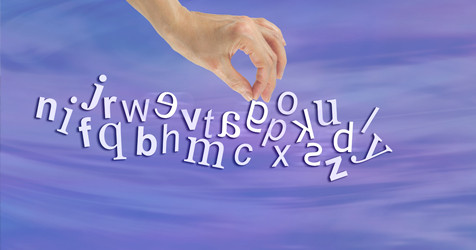WHAT IS DYSLEXIA?
Dyslexia refers to a cluster of symptoms, which result in people having difficulties with specific language skills, particularly reading and other language skills such as spelling, writing, and pronouncing words. It is referred to as a learning disability because dyslexia can make it very difficult for a student to succeed academically in the typical instructional environment.
WHAT CAUSES DYSLEXIA?
The exact causes of dyslexia are unclear, but anatomical and brain imagery studies show differences in the way the brain of a dyslexic person develops and functions. Moreover, most people with dyslexia have been found to have problems with identifying the separate speech sounds within a word and/or learning how letters represent those sounds, a key factor in their reading difficulties.
WHO ARE AT RISK OF DEVELOPING DYSLEXIA?
Dyslexia occurs in people of all backgrounds and intellectual levels. People who are very bright can be dyslexic. They are often capable or even gifted in areas that do not require strong language skills, such as art, computer science, design, drama, electronics, math, mechanics, music, physics, sales, and sports.
In addition, dyslexia runs in families; dyslexic parents are very likely to have children who are dyslexic. Some people are identified as dyslexic early in their lives, but for others, their dyslexia goes unidentified until they get older.
HOW IS DYSLEXIA DIAGNOSED?
A comprehensive evaluation typically includes intellectual and academic achievement testing, as well as an assessment of the critical underlying language skills that are closely linked to dyslexia. These include listening and expressive language skills, phonological skills including phonemic awareness, and also a student’s ability to rapidly name letters and names. A student’s ability to read lists of words in isolation, as well as words in context, should also be assessed. If a profile emerges that is characteristic of readers with dyslexia, an individualized intervention plan should be developed, which should include appropriate accommodations, such as extended time. The testing can be conducted by trained school or outside specialists.
WHAT ARE THE SIGNS OF DYSLEXIA?
The problems displayed by individuals with dyslexia involve difficulties in acquiring and using written language. Other problems experienced by dyslexics include the following:
- Learning to speak
- Learning letters and their sounds
- Organizing written and spoken language
- Memorizing number facts
- Reading quickly enough to comprehend
- Persisting with and comprehending longer reading assignments
- Spelling
- Learning a foreign language
- Correctly doing math operations
HOW IS DYSLEXIA TREATED?
Dyslexia is a life-long condition. With proper help, many people with dyslexia can learn to read and write well. Early identification and treatment is the key to helping dyslexics achieve in school and in life. Most people with dyslexia need help from a teacher, tutor, or therapist specially trained in using a multisensory, structured language approach. It is important for these individuals to be taught by a systematic and explicit method that involves several senses (hearing, seeing, touching) at the same time. Many individuals with dyslexia need one-on- one help so that they can move forward at their own pace
Mental health specialists can help students cope with their struggles.
WHY KIMS?
KIMS, one of the best neurology hospitals in Hyderabad, provides evaluation and diagnosis for children with academic learning disorders, as well as specialized treatment for those with dyslexia.
Led by best paediatric neurology specialist in Hyderabad, KIMS’ team combines the experience and skills of medicine and education. Our best neurologist specialist in Kondapur has taken charge in the hospital to ensure that the reliable services of KIMS reaches each and every corner of Hyderabad.
